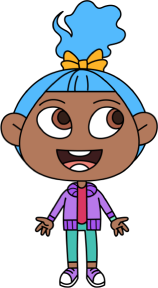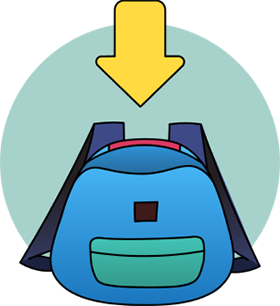Reading is fun! It introduces children to a whole new world of learning and adventure. At Schooling Online, we believe that children should start reading at a young age. From the ages of 2 to 5, children start to explore and engage with the world around them. This is the perfect time to begin their reading journey!
We realise that teaching a child to read can be hard and even overwhelming for parents and educators. There is no magic formula. Children need to be captivated by stories and read on a regular basis. A Fun Phonics Series empowers you to deliver this experience, while meeting the requirements outlined in the Early Years Learning Framework (EYLF). We will inspire your child to fall in love with reading.
Children will insist on watching the stories again and again! You can incorporate this series into your child’s daily routine with ease. Engage your child with charismatic characters and beautiful illustrations!
We want to support our viewers on this journey, so here are some tips for parents and educators when using our lessons:
1.Integrate our videos into your centre’s curriculum.
Our lessons are based on the learning outcomes described in the EYLF. We encourage parents and educators to integrate our online lessons into children’s play experiences and projects in the classroom. As children become effective communicators, they will also develop a sense of belonging to their community. We believe that the ability to read and pronounce different letters forms a cornerstone of early literacy. This will prepare children for further learning in primary school.
At Schooling Online, we want children to become confident and involved learners, as well as effective communicators, and master phonics during this process.
Parents and educators can find the ELYF outcome covered in each video in the lesson description. Educators can refer to this information when integrating our videos into their weekly, monthly or yearly lesson plans at their centre. We want to tailor our videos to your centre’s distinct educational program, giving you flexibility when incorporating our videos into your lessons.
Parents planning their child’s reading at home should also refer to the EYLF outcomes listed in our descriptions. The possibilities are endless when our videos are at your fingertips!
2. Establish a daily routine.
Parents and educators are encouraged to show our videos on a regular basis, allowing children to learn at a gradual pace. Sitting down and watching a story together could become your child’s favourite part of the day. It’s easy! Start watching our lesson on the letter A and work your way to the letter Z.
Every lesson includes structured instructions to guide you as you teach your child to sound out each letter of the alphabet. Key phonetic sounds are underlined in the text to take the hard work out of learning and teaching. In no time, your child will be recognising letters and pointing them out!
Pause at any point to read the text to your child. As children gain confidence, take turns reading the story to each other. We want your child to learn each letter one by one, so our videos should be viewed day by day. Of course, if your child enjoys the story, then watch it again!
Some letters may be more challenging for your child to learn. We understand that, so we’ve created a “My Lessons” page where you can save your favourite videos. Just click the little heart button under a video to save a lesson for future viewing.
3. Ask open ended questions.
At Schooling Online, we understand the importance of play-based learning in growing young minds. We want children to interact with their parents and educators in a fun environment. That’s why our videos cater to children’s natural sense of inquiry and discovery.
Parents and educators should encourage children to read out new words and use them in regular conversation. Literacy isn’t just about learning the letters and sounds – it’s about having the confidence to use them! A Fun Phonics Series focuses on phonics while exploring life lessons at the same time.
We recommend that you pause the video often to ask your child open-ended questions and answer their inquiries. Teach them how to use new words and sounds in a sentence, then encourage them to say it on their own! Ask for their opinions on the characters’ experiences.
As your child becomes more emotionally intelligent, ask them more complex questions. Our videos create a secure and warm space for children to express their opinions through discussion with parents and educators. Our non-traditional approach allows children to actively engage with reading and language, while progressing as independent learners.
Use the ‘Five Ws’ question method to get started - who? what? when? where? why?
• Who is your favourite character?
• What do you think will happen next?
• When did this happen to the character?
• Where did the event take place?
• Why did this happen to the character?
Encourage them to use new words and sounds:
• What letter does this word begin with?
• Have you heard this word before? Can you say it out loud?
• Can you try using this word in a sentence?
• Can you find this word on the page?
• Can you remember how to spell this word?
As your child progresses through our videos, you may ask them:
• How did the character feel when that happened?
• How did you feel when that happened?
4. Use positive reinforcement.
Children need safe and trusting relationships to confidently explore the world around them and take risks as learners. Parents and educators should always motivate children by rewarding their efforts! Model enthusiasm for the stories and comment positively when they engage with the lesson. This will nurture your child’s interest and motivation to read.
Encourage your child to experiment with new words and sounds by using them in a phrase or sentence. Commend their use of exciting and effective reading strategies. For example, you could say, “I love how you changed your voice to suit the character in Liam’s Long List.” You could also tell your child, “I’m glad that you tried again after you didn’t get it right the first time. See, now you can say the soft ‘C’ sound in ‘celery’!”
Your support and positive reinforcement are crucial to the process of learning. It will allow children to cultivate their enthusiasm, as well as their resilience, when they get things wrong. It’s like learning to ride a bike for the first time; kids can get discouraged when they fall and need to get back up!















